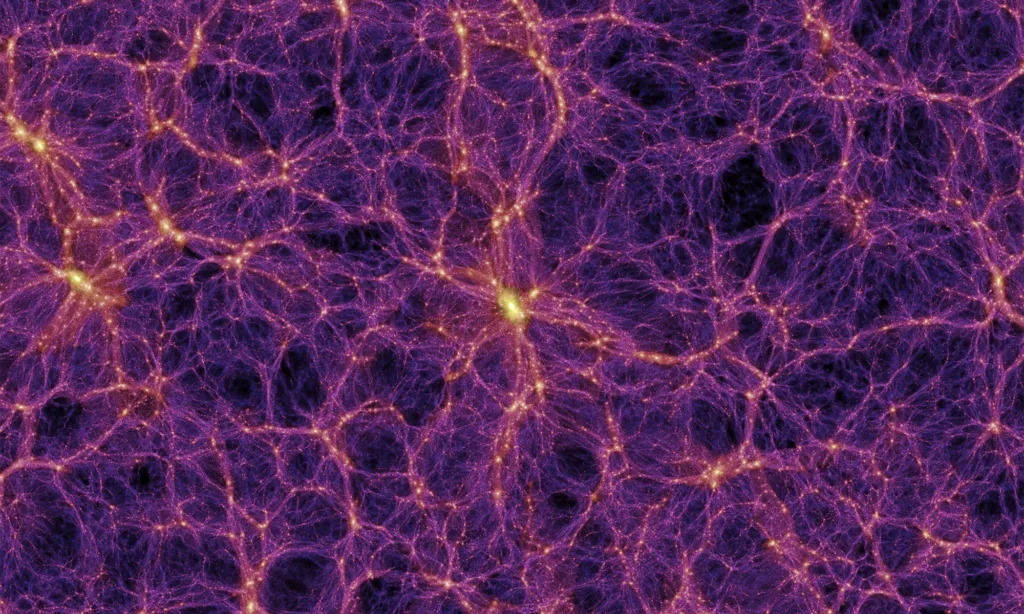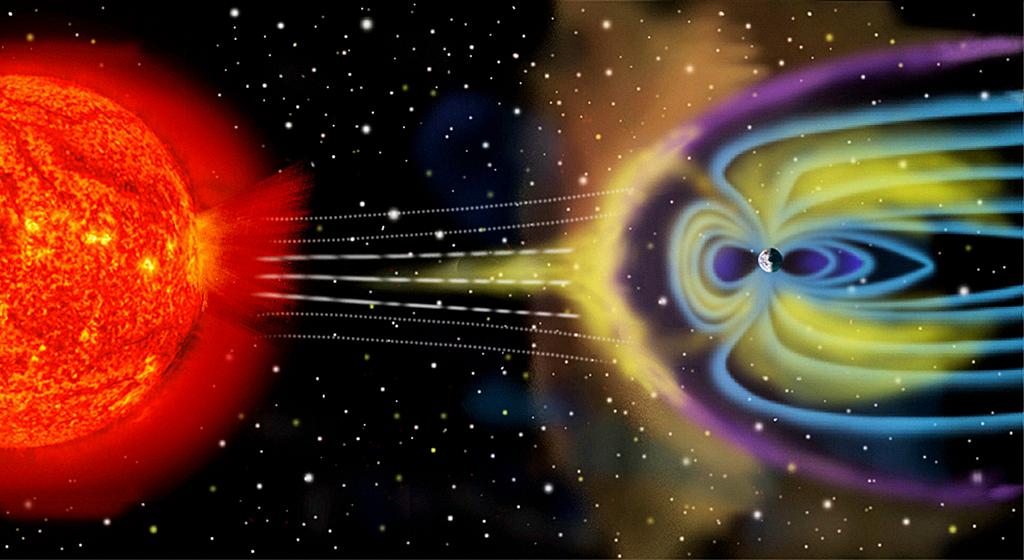Magnets are fascinating objects that have been studied and used for thousands of years. They have been used for everything from navigation to medical imaging, and they are an essential component in many modern technologies. But what about magnets in space? Do they work the same way as they do on Earth? Let’s take a closer look.
First, let’s talk about what magnets are and how they work. Magnets are materials that produce a magnetic field, which is a force that can attract or repel certain materials, such as iron or steel. This magnetic field is created by the movement of electrons within the material, which creates a dipole moment, or a north and south pole. When two magnets are brought together, the opposite poles will attract each other, while the same poles will repel each other.
Now, let’s talk about how magnets work in space. The short answer is that magnets work in space just like they do on Earth. The reason for this is that the laws of physics, including electromagnetism, are the same troughout the universe. However, there are some differences in the way that magnetic fields are created and behave in space.
One of the most interesting examples of magnets in space are magnetars, which are young neutron stars with incredibly strong magnetic fields. These magnetic fields can be up to 1,000 trillion times stronger than Earth’s magnetic field, and they can produce some of the most energetic phenomena in the universe, such as gamma-ray bursts and giant flares.
But what about other objects in space? Planets, stars, and even entire galaxies have magnetic fields, and these fields can have a significant impact on their behavior. For example, the sun’s magnetic field is responsible for the formation of sunspots and solar flares, which can have a major impact on Earth’s climate and technology.
So, to answer the question, yes, magnets do work in space. However, the behavior of magnetic fields in space can be quite different from what we observe on Earth, and understanding these differences is essential for studying the universe around us.
Magnets are an essential part of our understanding of the universe, and they work just as well in space as they do on Earth. From magnetars to galactic magnetic fields, the study of cosmic magnetism is a fascinating and important field of research that can help us better understand the universe we live in.
The Strength of Magnets in Space
Magnets in space, specifically the magnetic fields of neutron stars known as magnetars, are incredibly strong. To put it into perspective, the magnetic fields of these young, spinning neutron stars can be 1,000 trillion times stronger than Earth’s magnetic field. This makes them some of the strongest known magnets in the universe. These magnetic fields are so strong that they can cause intense radiation bursts and even affect the shape of the magnetar itself. It’s important to note that while magnetars have incredibly strong magnetic fields, not all magnets in space are this strong. Magnetic fields can vary in strength depending on the object they are assocated with.

Do Magnets Work in Underwater and Space Environments?
Magnets do work underwater, but their strength might be affected by the medium they’re in. Water is alost completely non-magnetic, so magnets work underwater the same as they do in air or in a vacuum. However, if the magnet is coated with a material that is not water-resistant, it could be damaged or weakened when submerged.
On the other hand, in space, magnets work differently than they do on Earth. In the absence of gravity, some magnetic fields can become distorted or even disappear altogether. Additionally, the lack of an atmosphere in space means that there is no medium for the magnetic field to interact with, which can also affect the strength or behavior of the magnet. However, despite these differences, magnets are still used extensively in space for a variety of purposes, including controlling spacecraft and generating power for scientific experiments.
Can Magnetic Force Act in a Vacuum?
Yes, magnetic force can act in space. In fact, magnetism is a fundamental force of nature that is present throughout the universe. Magnetic fields can be found on planets, stars, gaseous nebulae, and even entire galaxies. These magnetic fields are created by the motion of electrically charged particles, such as electrons and ions, whch give rise to magnetic fields that can influence the motion of other charged particles.
Magnetic fields in space can have significant effects on the behavior of cosmic objects. For example, the Earth’s magnetic field protects us from harmful solar radiation, and also plays a role in the formation of the aurora borealis. Magnetic fields can also affect the behavior of plasma, which is a highly ionized gas that is abundant in space. In some cases, magnetic fields can even cause plasma to become organized into structures such as filaments or magnetic ropes.
Overall, magnetic force is a crucial aspect of the cosmos, and understanding its behavior in space is essential for understanding the behavior of cosmic objects, as well as the broader workings of the universe.
Does Magnetic Field Work in Space?
Yes, magnetic fields work in space. In fact, magnetic fields are crucial to many processes that occur in space. The Earth, for example, has its own magnetic field that helps protect us from the harmful effects of the solar wind and other charged particles that stream towards us from the Sun. Without this magnetic shield, the Earth’s atmosphere would be stripped away, making it much more difficult for life to exist.
Magnetic fields are also important for understanding how stars and galaxies form and evolve. In the early Universe, magnetic fields played a key role in shaping the distribution of matter and determining the structure of the cosmic web. They are also responsible for the spectacular phenomena known as magnetars and pulsars, which are some of the most extreme objects in the Universe.
In addition, magnetic fields are used in many scientific instruments and experiments that are sent into space. For example, the Hubble Space Telescope uses magnetic fields to help stabilize its pointing and maintain its orientation. The Voyager spacecraft, which has now left our Solar System, relies on magnetic fields to detect the presence of charged particles in interstellar space.
So, magnetic fields are an essential part of the workings of space, and they continue to be a subject of intense study and fascination for scientists and astronomers.
The Effects of Magnets in Space
Yes, magnets can attract each other in space. The reason for this is that magnets work based on the magnetic force, which is a fundamental force of nature. This force is not dependent on gravity, which means that it can act btween two objects even in the absence of gravity. Unlike gravity, which is a long-range force, the magnetic force is a short-range force that only acts between objects that are in close proximity to each other.
When two magnets are brought close together, they can either attract each other or repel each other. The direction of the force depends on the orientation of the magnets. If the magnets are oriented such that their opposite poles are facing each other, they will attract each other. However, if the magnets are oriented such that their like poles are facing each other, they will repel each other.
In space, where there is no air resistance, magnets can attract each other over long distances. This is because there is no friction or other forces that can act to slow down the magnets or interfere with the magnetic force. However, the strength of the magnetic force decreases with distance, so the attraction between two magnets will become weaker as they move farther apart.
In conclusion, magnets can attract each other in space because the magnetic force is not dependent on gravity and can act over long distances.

Do Magnets Lose Their Magnetic Properties?
Yes, magnets can fail or lose their magnetic properties over time due to various reasons. One of the most common reasons for magnet failure is exposure to high temperatures, wich can cause the magnet to lose its magnetism or become demagnetized. This can occur when magnets are exposed to temperatures above their Curie point, which is the temperature at which a magnet loses its magnetic properties.
Another reason for magnet failure is exposure to strong external magnetic fields, which can cause the magnet to become misaligned or demagnetized. Additionally, exposure to moisture or corrosive substances can cause the magnet to deteriorate and lose its magnetic properties.
Furthermore, magnets can also fail due to mechanical stress or physical damage, such as if a magnet is dropped or struck with a hard object. In some cases, magnets can also fail due to manufacturing defects or poor quality control.
It’s important to note that magnets can have a long lifespan if they are properly maintained and used within their specified operating conditions. However, factors such as temperature, magnetic field exposure, moisture, and physical damage can all contribute to magnet failure over time.
The Possibility of Using Magnets for Propulsion
Yes, magnets can create propulsion through the use of electromagnetic propulsion technology. This technology harnesses the natural repulsion between two magnets to create a pushing force, whch can be used to propel another magnetic object. Maglev trains are a prime example of how this technology can be used for transportation. In maglev trains, the train carriages are fitted with powerful magnets that are repelled by the magnets in the tracks, causing the train to levitate and move forward without touching the ground. This technology has several advantages over traditional trains, including faster speeds, smoother rides, and reduced maintenance costs. Additionally, electromagnetic propulsion technology is being explored for use in aerospace and other industries where the ability to move objects without physical contact is desirable.
Does Magnetic Force Work on the Moon?
Magnets wuld work on the moon, but their effectiveness would depend on the strength of the magnetic field they are exposed to. As mentioned earlier, the moon does not have a global magnetic field like Earth, but there are localized regions on its surface where a strong magnetic field is present. So if a magnet is brought near one of these regions, it will experience a magnetic force and be attracted or repelled depending on its polarity. However, if the magnet is brought to an area with no magnetic field, it will not be affected. It is also worth noting that the strength of the magnetic field on the moon is much weaker than Earth’s, so the magnetic force experienced by a magnet would be correspondingly weaker.
The Effects of Taking a Compass to Space
If you take a compass to space, it will still be able to align with the Earth’s magnetic field, despite the weakening of the field as you move further away from our planet. The compass needle aligns with the magnetic field lines of the Earth, which are generated by the motion of molten iron in the Earth’s core.
In space, the magnetic field is weaker due to the distance from the Earth and the lack of a magnetosphere to protect it. However, the magnetic field is still present and a compass on the International Space Station wuld still be able to point reliably to the Earth’s North Pole.
It is important to note that the magnetic field of other planets or celestial bodies would affect the compass differently. For example, if you were to take a compass to Mars, the needle would point in a different direction because Mars has a different magnetic field.
Overall, a compass can still be a useful tool in space to determine direction relative to the Earth’s magnetic field, despite the weakening and differences in magnetic fields of other celestial bodies.

Source: astronomy.com
The Impact of Magnets on Space-Time
According to recent research, magnetic fields can indeed affect the fabric of space-time. This is because the equations of general relativity, which describe the behavior of space-time, show that magnetic fields tend to flatten and stiffen space-time. This means that the presence of strong magnetic fields can cause space-time to become more rigid and less flexible.
This finding has important implications for our understanding of the universe, as magnetic fields are thought to play a role in many astrophysical phenomena, such as the formation of stars and galaxies, the behavior of black holes, and the acceleration of cosmic rays. It suggests that magnetic fields may have had a greater impact on the evolution of the cosmos than previously thought, and may have influenced the structure and behavior of space-time itself.
Overall, while the precise nature of the relationship between magnets and space-time is stll being explored, it is clear that magnetic fields can have a significant impact on the behavior of the universe, and researchers will continue to investigate this fascinating and complex topic.
Can Electricity Run in Space?
Yes, electricity can run in space. Although space doesn’t have wires or a traditional electrical grid, electronic devices can still function in the vacuum of space. This is because electricity is the flow of charged particles, such as electrons, and thse particles can still move and interact in space. In fact, many spacecraft and satellites rely on electrical power to operate their systems, including communication, navigation, and scientific instruments. However, it’s important to note that in space, there are also unique challenges to consider, such as exposure to radiation and extreme temperatures, that can affect the performance and reliability of electronic devices.
Can Magnetic Force Outweigh Gravity?
At the planetary level, gravity is much stronger than magnetism. In fact, gravity is 137 times stronger than magnetism. However, at the atomic and sub-atomic levels, electromagnetism (or magnetic force) can be stronger than gravity. This is because gravity is a very weak force at these small scales, and electromagnetic forces can dominate the behavior of particles. So, in summary, while gravity is stronger than magnetism on a large scale, magnetic force can be stronger than gravity on a very small scale.
Exploring the Magnetization of the Universe
Yes, the universe is indeed magnetized. Magnetic fields can be found throughout the cosmos, from individual stars to entire galaxies and beyond. These fields play important roles in shaping the structure and evolution of the universe, influencing everything from the way stars form and evolve to the behavior of cosmic rays and even the motion of galaxies themselves. The Milky Way, for example, has a magnetic field that helps to shape the interstellar medium, the gas and dust that fills the space beween stars and serves as the raw material for new star formation. Scientists are still working to understand the origins and properties of these magnetic fields, but their presence is well established and an important part of the fabric of the universe.

The Magnetic Properties of Earth in Space
Yes, Earth can be considered as a magnet in space. This is because Earth has a magnetic field that is generated by the movement of molten iron in its liquid outer core. The magnetic field of Earth is similar to that of a bar magnet, with a north and south pole. The magnetic field extends outwards from Earth and interacts with charged particles in space, deflecting them and creating phenomena such as the aurora borealis. The magnetic field of Earth also plays a crucial role in protecting the planet from harmful solar radiation and charged particle streams from the sun. So, in summary, Earth is ineed a magnet in space due to its magnetic field generated by the movement of molten iron in its liquid outer core.
Conclusion
In conclusion, magnets are fascinating objects that have captured human curiosity for thousands of years. From their use in ancient navigation to their modern-day applications in technology and medicine, magnets continue to play an important role in our daily lives. They work underwater just as well as they do in air or a vacuum, and their properties have been studied extensively in both terrestrial and extraterrestrial environments. Cosmic magnetism, in particular, is an intriguing field that explores the magnetic fields of planets, stars, and galaxies, and sheds light on the fundamental nature of the universe. Although there is still much to learn about magnets, their ubiquity and importance in the natural world make them a topic of endless fascination and study.
